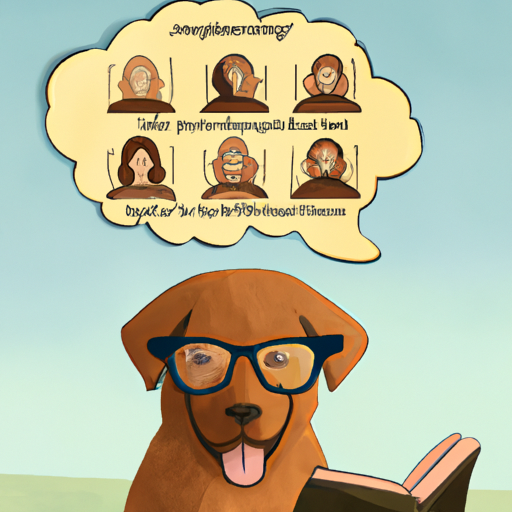As a caregiver, you are likely to find that your relationship with your furry friend is a profound one. You may often wonder, “What do dogs know about us?” This article will delve into the extraordinary world of dogs and their understanding of their human companions.
H2: How Dogs Perceive Us
Dogs, as your caregiving instincts might tell you, are incredibly perceptive. They can pick up on our emotions, body language, and even our health status.
-
Emotional Perception: Dogs are sensitive to human emotions. They can sense when we are happy, sad, stressed, or excited, and often respond accordingly. This is why a dog might come to comfort you when you are feeling down, or jump around excitedly when you are in a good mood.
-
Body Language: Dogs are experts at reading our body language. They notice and react to our facial expressions, postures, and movements. Even the subtlest changes can clue them into our feelings and intentions.
-
Health Status: Some dogs can detect changes in our health. For instance, service dogs can be trained to recognize the signs of a seizure or a drop in blood sugar.
H2: Dogs and Human Communication
Dogs not only perceive us, but they also communicate with us. They use a variety of cues to express their emotions and needs.
-
Barking: Dogs bark to alert us of danger, to get our attention, or to express excitement.
-
Body Posture: A dog’s body posture can tell us a lot about their mood. A wagging tail often means they are happy, while a lowered tail and ears can indicate fear or submission.
-
Facial Expressions: Dogs use facial expressions to convey their feelings. You might notice your dog’s eyes widen in excitement, or their eyebrows furrow in confusion.
| Dog’s Cue | Possible Meaning |
|---|---|
| Barking | Alert, attention, excitement |
| Wagging tail | Happiness |
| Lowered tail and ears | Fear or submission |
| Widened eyes | Excitement |
| Furrowed eyebrows | Confusion |
H2: The Bond Between Dogs and Humans
The bond between dogs and humans is deep and ancient. Dogs have been our companions for thousands of years, and this long history of cohabitation has forged a unique connection between our two species.
-
Empathy: Dogs seem to have a natural empathy for humans. They often mirror our emotions and respond to our needs, offering companionship and comfort when we need it most.
-
Loyalty: Dogs are known for their loyalty. They stick by our side, defend us, and show us unconditional love.
-
Cooperation: Dogs and humans have a long history of working together. Dogs have been used for hunting, herding, and protection, while humans have provided dogs with food, shelter, and care.
H2: The Limitations of a Dog’s Understanding
While dogs are incredibly perceptive and empathetic, they do have their limitations. They do not understand our language in the same way we do, and they may not fully grasp the concept of time.
-
Language Understanding: Dogs can learn to associate certain words or phrases with actions or objects, but they do not understand human language in the same way we do.
-
Concept of Time: Dogs seem to live in the moment. They do not have a clear understanding of the past or the future. They can, however, learn patterns and routines.
H2: Frequently Asked Questions (FAQ)
Q: Do dogs understand when we speak to them?
A: Dogs can learn to associate certain words or phrases with actions or objects, but they do not understand human language in the same way we do.
Q: Can dogs sense our emotions?
A: Yes, dogs are sensitive to human emotions. They can sense when we are happy, sad, stressed, or excited.
Q: Can dogs detect changes in our health?
A: Some dogs can detect changes in our health. For instance, service dogs can be trained to recognize the signs of a seizure or a drop in blood sugar.
Q: Do dogs understand the concept of time?
A: Dogs seem to live in the moment. They do not have a clear understanding of the past or the future. They can, however, learn patterns and routines.
In conclusion, while dogs may not fully comprehend our world, they do have a remarkable understanding of us. They perceive our emotions, read our body language, communicate with us, and form deep bonds with us. As caregivers, the more we understand about our canine companions, the better we can care for and connect with them.



